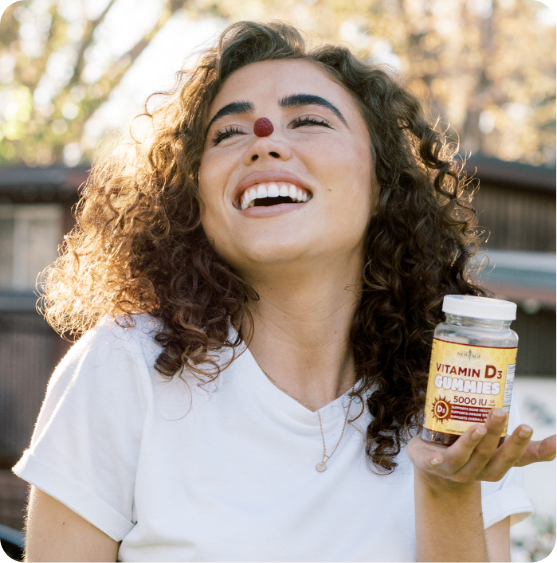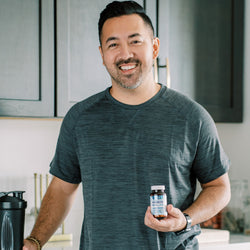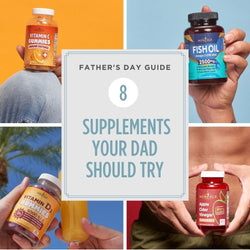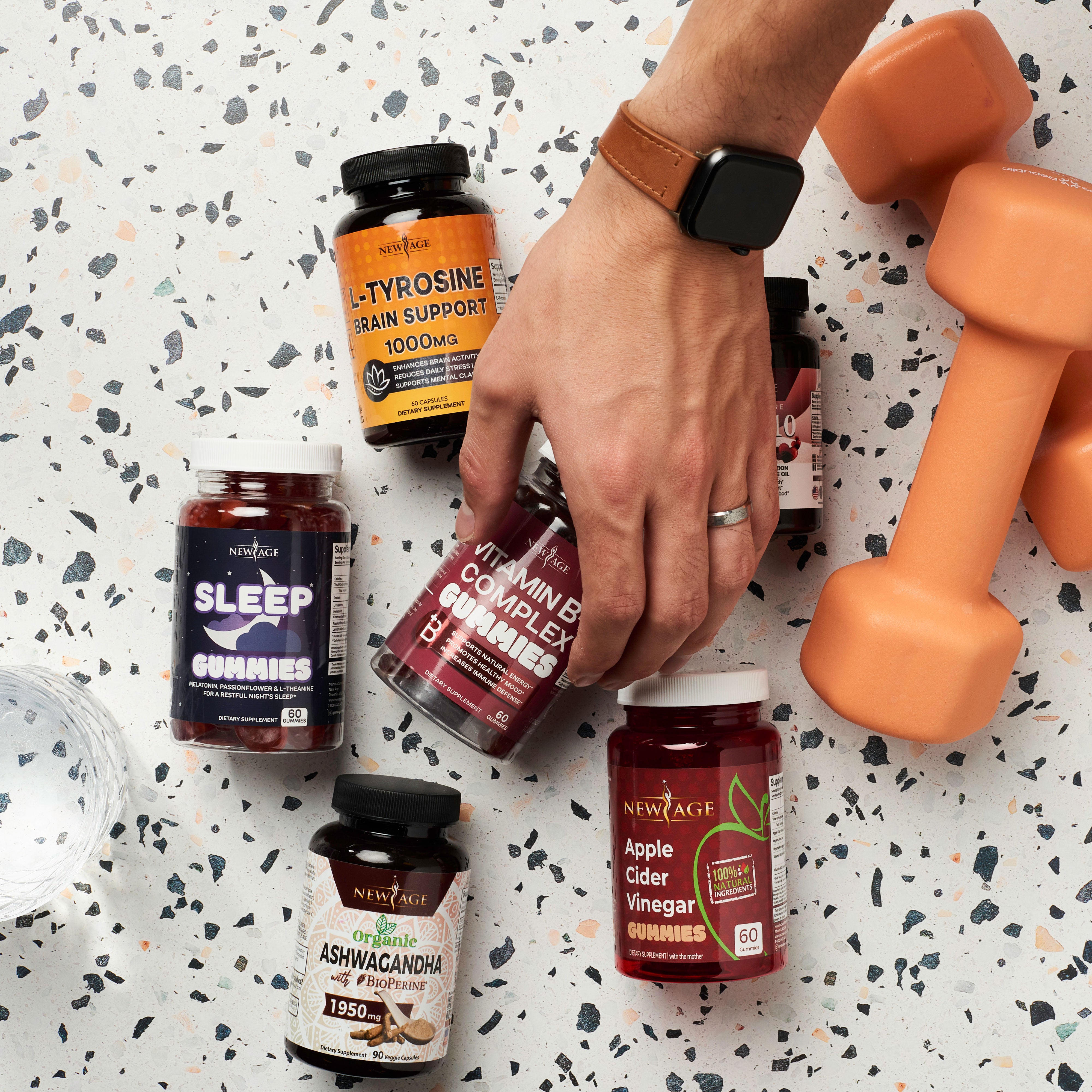
The most common causes of fatigue can be traced back to our routines. (This is outside of any larger physical or mental health issues at play, because those vary drastically from person to person.) So, taking a closer look at your daily or weekly habits might shed some light on why you’re feeling so “blah”, especially if you’ve been experiencing low energy for an extended period of time.
Here are some common causes of fatigue and how to adjust your habits for a better wellness routine.
STRESS
Although we tend to think of people who are stressed as being frantic, spazzy, or even a little manic, the effects of stress can show up in ways that may seem counterintuitive.
Stress dramatically affects our energy levels and can actually make us feel depleted or fatigued rather than anxious.
Activities like yoga, meditation, tai-chi, and others are great outlets to practice channeling your stress or letting it go.
From a supplement perspective, ashwagandha (an herb and adaptogen) can enhance your body’s resilience to physical and mental stress and can also help with fatigue associated with exercise.
DEHYDRATION
It may be one of the more common wellness tips, to drink more water, but there’s a reason for that. Most of our body is made up of water, like our brains and hearts, which are made up of about 73% water. This means we need to remain hydrated to function properly. Dehydration can lead to fatigue or fogginess of the mind and is worse for those with brain disorders or dementia.
So, drink water. And keep drinking water especially in the warmer months. Drink before you’re even thirsty, because once you’re thirsty, you’ve already crossed the threshold into dehydration-land. And it's a long way back.
To combat those foggy feelings, L-Tyrosine is a brain supplement that is good for brain health and production of neurotransmitters, which helps concentration and energy levels. If you want to be really efficient, take two capsules and wash them down with a few glasses of water (or six) for best results. It’ll be the best of both worlds. Hydration and brain boosting amino acids.
EXERCISE (TOO MUCH OR TOO LITTLE)
When you’ve finished an intense workout or otherwise exerted your body (overly or just an average amount), it makes sense that you will feel tired afterward. However, the opposite can also be true—if you don’t move your body enough and get your blood flowing, it’s possible you’ll begin to feel lethargic. Further, it could possibly affect your ability to get a good night’s sleep, which could be the beginning of a vicious cycle.
Exercise, even something as simple as walking, can be helpful for your energy levels and overall health. It’s recommended that you do some type of activity to increase your heart rate for 20 minutes two times a week at the very minimum.
In the world of dietary supplements, beetroot powder (like the kind in our Apple Cider Vinegar Gummies) contains high amounts of nitrate. Nitrates help the body produce nitric oxide, which helps relax blood vessels and increase blood blow/oxygen levels. This is especially good for athletes but can also be helpful for those having trouble with their general energy levels.
Another supplement that is extremely useful, especially for those who aren’t say…in their 20’s anymore, is CoQ10 (coenzyme Q10). Cells use CoQ10 to make energy and to protect themselves from oxidative stress/damage. It’s present in all cells and most prevalent in the organs; levels of CoQ10 decrease as we age.
POOR DIET OR UNHEALTHY EATING HABITS
Many people have emotional relationships with food and our diet can be affected by this. That said, it’s more important that you try to eat for energy rather than just eating things that satisfy you in the moment.
Food is meant to work as fuel and break down to create energy for us as we go about our day-to-day lives and activities, no matter what those may be for you.
Vitamin B (B12 in particular) is an energy-boosting vitamin that helps transform food into energy. It helps maintain healthy, strong blood cells, which can help prevent anemia associated with fatigue and weakness.
Vitamin B12 is especially important for expectant mothers, it also helps increase testosterone levels in men, and is important for older adults.
POOR SLEEPING PATTERNS
It may seem extremely obvious but when you get poor sleep, your energy levels are considerably lower. Better sleep equals better energy overall, plain and simple. Try to avoid napping as much as possible, get natural light during the day, and turn off your electronics an hour or so before you head to bed.
Supplements with melatonin (like our Sleep Gummies) can be extremely helpful in resetting your body’s natural sleep cycle. It’s also suggested that pairing caffeine with a supplement including L-theanine (also in our Sleep Gummies) can help reduce the effects of caffeine crashes.
Unhealthy sleep patterns could be the first domino in a string of other health issues including poor energy levels.
SMALL STEPS CAN CREATE BIG CHANGES
To sum everything up, it's important that you try your best to eliminate stress in your life, drink enough water, exercise regularly, eat a balance diet, and get enough sleep. It sounds like a lot, right? But try focusing on one area where you'd like to make some improvements and go from there. Baby steps for your wellness will pay off large dividends for your health in the long run.












